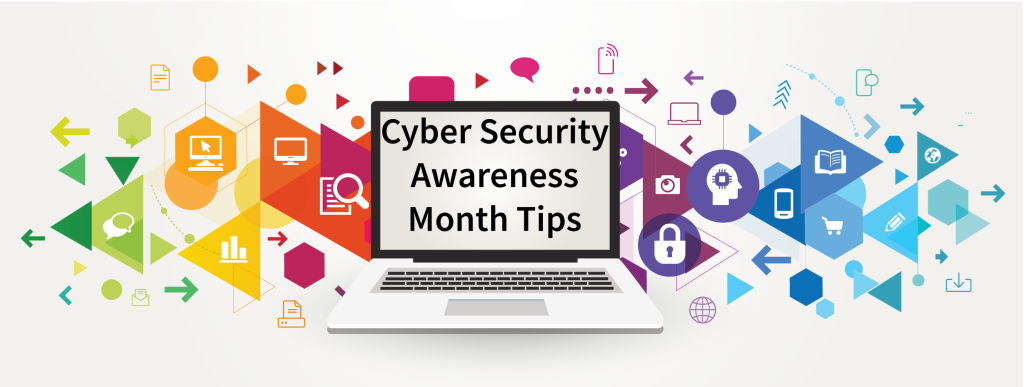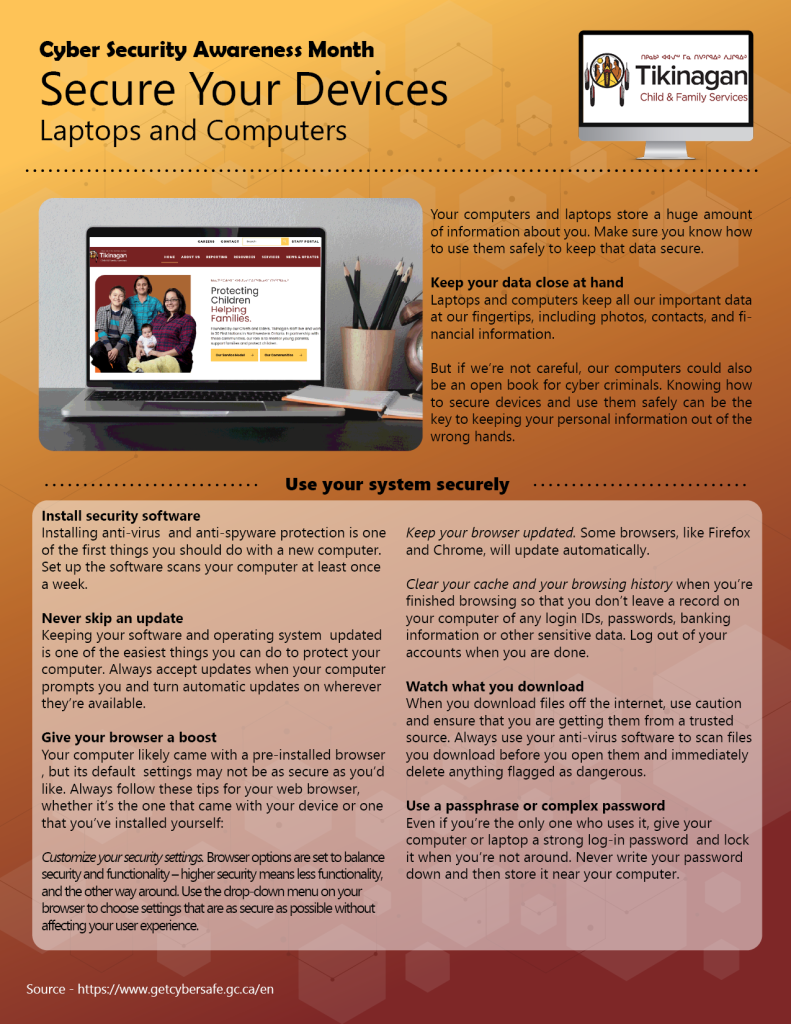Tips for Keeping You Cyber Safe – Secure your Devices: Laptops and Computers
Tips for Keeping You Cyber Safe – Secure your Devices: Laptops and Computers

Securing Your Devices
Your computers and laptops store a huge amount of information about you. Make sure you know how to use them safely to keep that data secure.
Keep your data close at hand
Laptops and computers keep all our important data at our fingertips, including photos, contacts, and financial information.
But if we’re not careful, our computers could also be an open book for cyber criminals. Knowing how to secure devices and use them safely can be the key to keeping your personal information out of the wrong hands.
Use your System Securely
Install security software
Installing anti-virus and anti-spyware protection is one of the first things you should do with a new computer. Set up the software scans your computer at least once a week.
Never skip an update
Keeping your software and operating system updated is one of the easiest things you can do to protect your computer. Always accept updates when your computer prompts you and turn automatic updates on wherever they’re available.
Give your browser a boost
Your computer likely came with a pre-installed browser , but its default settings may not be as secure as you’d like. Always follow these tips for your web browser, whether it’s the one that came with your device or one that you’ve installed yourself:
Customize your security settings. Browser options are set to balance security and functionality – higher security means less functionality, and the other way around. Use the drop-down menu on your browser to choose settings that are as secure as possible without affecting your user experience.
Keep your browser updated. Some browsers, like Firefox and Chrome, will update automatically.
Clear your cache and your browsing history when you’re finished browsing so that you don’t leave a record on your computer of any login IDs, passwords, banking information or other sensitive data. Log out of your accounts when you are done.
Watch what you download
When you download files off the internet, use caution and ensure that you are getting them from a trusted source. Always use your anti-virus software to scan files you download before you open them and immediately delete anything flagged as dangerous.
Use a passphrase or complex password
Even if you’re the only one who uses it, give your computer or laptop a strong log-in password and lock it when you’re not around. Never write your password down and then store it near your computer.

Previous Tip – Passwords | Next Tip – Secure Your Devices: Phones and Tablets

